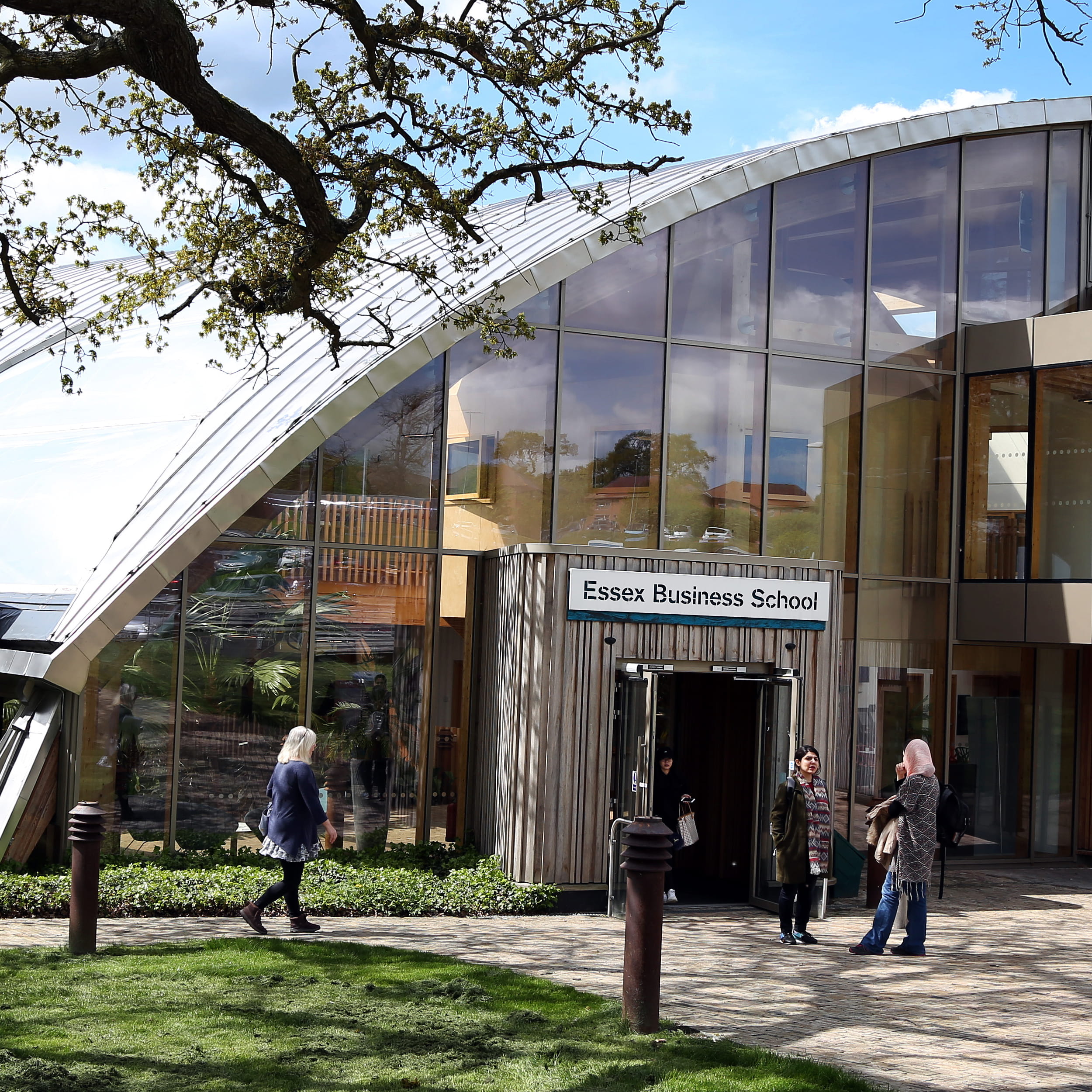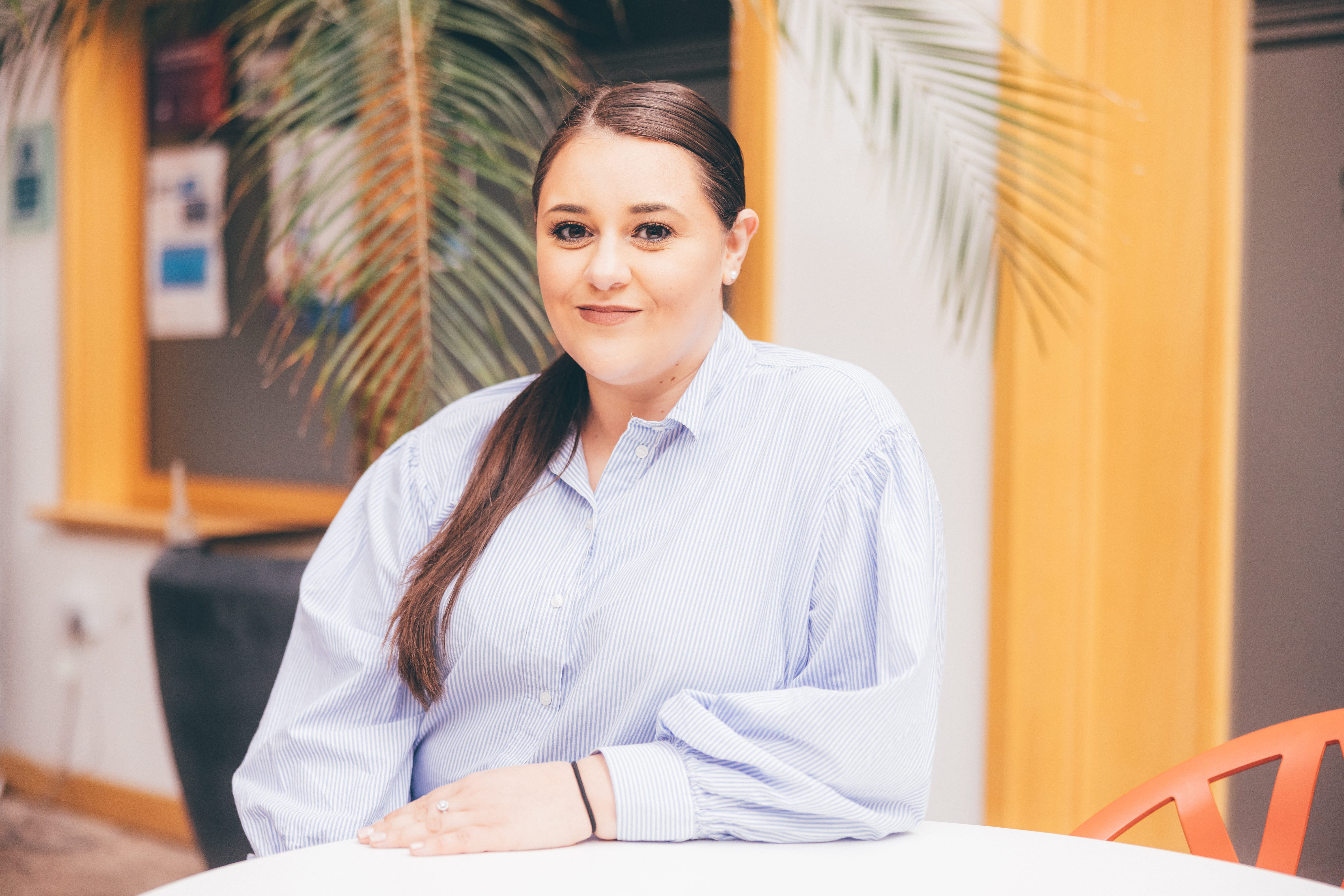Finding the time for a Masters at Essex Business School

Returning to study after a break from education and fitting study alongside full-time work may seem daunting. We spoke to Illana Flora, Residence Life Coordinator at the University of Essex, to find out what inspired her to undertake a Masters and how she balances this alongside her work.
Illana
"Having a deeper awareness of the theories gives me a better appreciation for how change is implemented and received in the workplace."
Why did you choose to study at Essex Business School and what inspired you?
I’ve been working full-time since finishing my undergraduate degree but have always wanted to study at postgraduate level. The pandemic inspired me to start looking at postgraduate options; being in lockdown made me realise that, outside of my full-time role, I have a lot of free time! This is thanks in part to adopting more flexible ways of working. I considered a few options, initially looking at a course that spanned two disciplines here at Essex. However, after attending an Essex Business School induction day for postgraduate students, and hearing more about MSc Organisational Change Management, I was certain I wanted to study this.
Why did you choose MSc Organisational Change Management?
People respond and react to change in so many different ways, whether that’s in their personal or professional life. When it comes to organisational change, I was fascinated to learn more about key concepts and theories in this field of study. It’s been really interesting to discuss various case studies that span a variety of industries, but see the similarities in the challenges and issues that are often faced in organisational change projects. Having a deeper awareness of the theories behind this are giving me a better appreciation for how change is implemented and received in the workplace.
What are you most proud of in your university experience?
Initially, after seven years away from academic study, I was really nervous to come back into academic study, especially at postgraduate level. I had a lot of doubts over whether I was capable enough for this level of study. At Essex I have attended a lot of Skills for Success workshops to help me feel more prepared. I also had a lot of worries around balancing a part-time degree with full-time work, but I’ve stuck to a good routine so far. I’ve been happy with my assessment results and am growing more confident in the skills required to do a postgraduate degree, so I have to say I’m proud of that!
You are part-way through your course what are your favourite aspects so far?
Discussing case studies and academic papers in the taught (classroom) time has been a great way to embed my learning and express curiosity around how different concepts relate to organisational change and organisational behaviour. My module leaders have been really welcoming of everyone’s perspectives, and encourage us to question and think more critically. Despite some of my modules having a small group size, it’s so surprising how interactive and chatty we are – the time has flown by during some lectures and seminars!
Studying part-time, I haven’t yet covered all the compulsory course material so far, but I’m really looking forward to my second year of the course and to begin thinking about my dissertation.
What do you like best about studying at our Colchester Campus?
I work full-time at Essex so I’m on campus quite a lot, so it’s been really important to balance when I’m in “work-mode “and “student-mode”. I usually spend some evenings and weekends studying in the Library; it’s often quiet at those times and I make use of spaces such as the postgraduate study room to fully focus on getting work done.
What are your aspirations and plans after graduation?
I’m in the early stages of deliberating with myself whether I would also like to do a PhD in this field of study but there are a lot of things to consider before I apply!
Organisational management and change is something we are all part of in the workplace. So, for now, I would like to apply the skills and knowledge in the course to further my current career path within professional services teams in Higher Education. The course content is so applicable to any career path since all organisations face change at some point, so I would recommend this course to anybody thinking of applying, especially those already working in the HR sector.
Interested in Management at Essex Business School?
At Essex, you explore more than just how organisations work and the best ways to manage them. Our Masters programmes promote critical reflection on the roles organisations have within different countries and cultures, as well as the impact they can have upon individuals.



